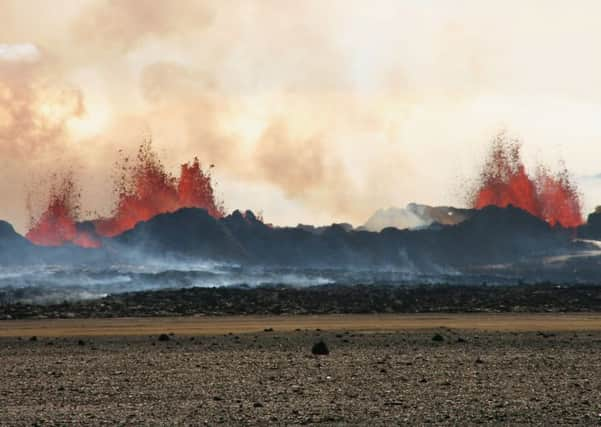New light shed on dinosaur extinction


A meteor strike is commonly regarded as the most likely theory as to why dinosaurs became extinct about 65 million years ago. But many scientists have speculated that ash and dust from volcanic eruptions stopped sunlight from reaching Earth, cooling temperatures so much that the creatures died out.
But now, the new study shows that the impact from volcanic eruptions may not have been anywhere near the extent speculated in a debate that has raged almost 40 years. It says that long-lasting volcanic eruptions called continental flood basalts would probably not have altered global climate enough to trigger a mass extinction.
Advertisement
Hide AdAdvertisement
Hide AdDr Anna Schmidt, who led a team of 11 scientists from across Europe and the USA in the study, said: “At the time when the dinosaurs reigned, numerous long-lasting eruptions took place over the course of about a million years. These eruptions, called ‘continental flood basalts’ were not like volcanic eruptions we often see today, with lava gushing from the ground like a curtain of fire.
“Each eruption is likely to have lasted years, even decades, and eruptions were separated by periods without volcanic activity. The lava produced by an eruption of average intensity would have filled 150 Olympic-size swimming pools per minute.”
The scientists used sophisticated software to mimic the effects that the gas and sulphurs from eruptions would have had on the dinosaurs and their fellow prehistoric creatures.
Dr Schimdt said: “There was probably less cooling than we originally thought, and the majority of animals living probably would have coped.”